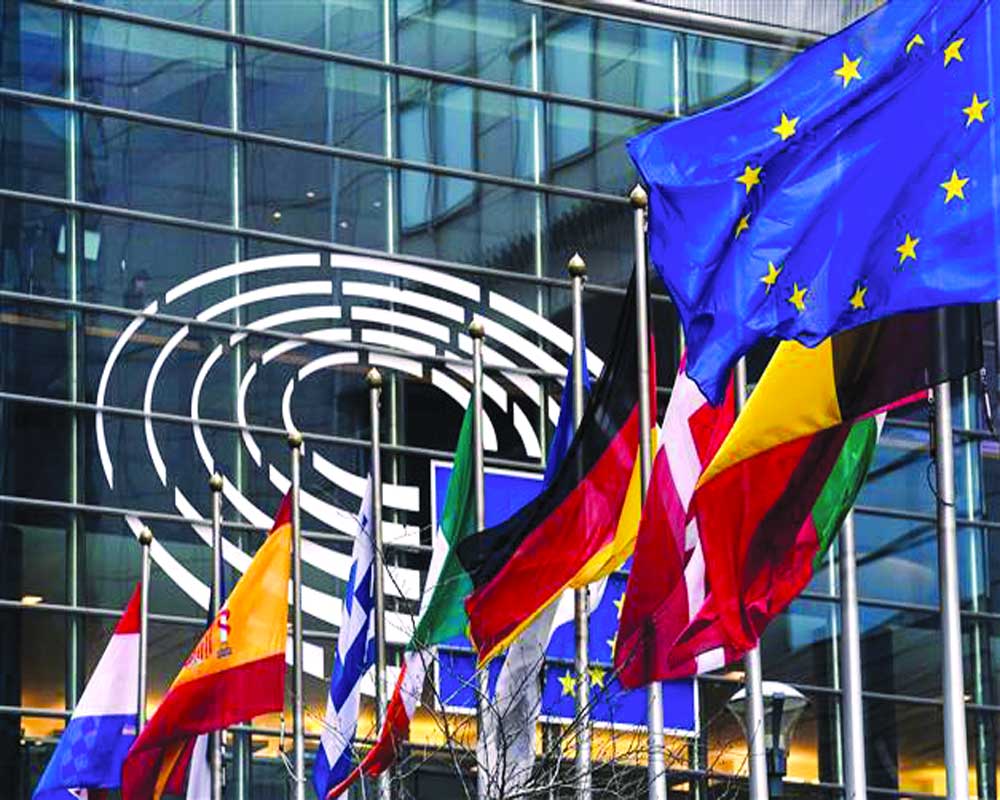India has rightly ignored the EU resolutions on CAA, argued the law is an internal matter but we must dispel doubts
It is perhaps a little hypocritical of the European Union (EU) to go so far as to pass resolutions against the Citizenship Amendment Act (CAA) when it has traversed a spectrum of genocidal politics and refugees born of racial hatred itself. That’s patronising. India is capable enough to conduct its own democratic scrutiny. Yes, all is not right with the new law that makes religion a criterion for naturalisation. And the civil society dissent against it has indeed become a pan-Indian movement to act as a counter-pressure to the Government. Both the law, which was duly passed by Parliament, and the mass protests thereafter, are within democratic convention. Though the Government clampdown on discourse is reprehensible, the recent protests have shown how masses of people can effectively turn the tide while being leaderless and without political endorsement. To that extent, the pro and anti-CAA battle will be settled within the spirit and territoriality defined by the Constitution and may actually set us on the self-corrective course of democratic renewal. We certainly won’t need any third-party intervention to make that call, India’s citizens are enough to do it. Domestic matters, no matter how contentious, will have to be solved domestically. Fellow democracies indeed need to respect that.
Also, such resolutions mean nothing unless they are a precursor to some sort of practical curbs in EU’s engagement with India (some EU members have suggested that as well) but that’s an extreme option, considering there are nations with worst rights violations. Unless of course, this is being done to negotiate a stronger position when Prime Minister Narendra Modi visits Brussels for an Indo-EU summit. Having said that, the international narrative does shape global perceptions and attitudes in engaging with India. And the resolutions embody unanimity of opinion from the extreme Right to extreme Left groups, coming from 625 of 752 EU members. Sifting through them, certain key issues do come up on which the Government has to ready its explainers and demonstrate that it is receptive as a vibrant democracy and not combative like an authoritarian regime. It has to engage with counterpoints than scare them away. The key concerns are clearly about the marginalisation of a community implicit in the CAA, its link with the profiling nature of census in the National Population Register (NPR)-National Register of Citizens (NRC) and the clampdowns on dissent, including those in Kashmir following its changed status as a Union Territory. The resolution, which falls under the category of “resolutions on topical subjects,” says that India has “created the legal grounds to strip millions of Muslims of the fundamental right of equal access to citizenship” and has linked the rights situation in Kashmir. The US, too, despite the guided tour of the Valley, has been critical of the detention of mainstream political leaders, who have so far worked within India’s democratic template and even been allies of New Delhi, without formal charges. The viral images of an emaciated, bearded and unkempt National Conference leader Omar Abdullah have only intensified the sense of victimhood at the hands of an oppressive regime. Till date, the Government’s lobbying and efforts to push its own point of view have not been too convincing. It has not made any reconciliatory moves either except by countering criticism with an obstinate aggression that is sharpening polarities. We must realise that intransigence is not always an asset even as we attempt to reset the template of diplomacy from passive to aggressive.
(Courtesy: The Pioneer)








 OpinionExpress.In
OpinionExpress.In















Comments (0)